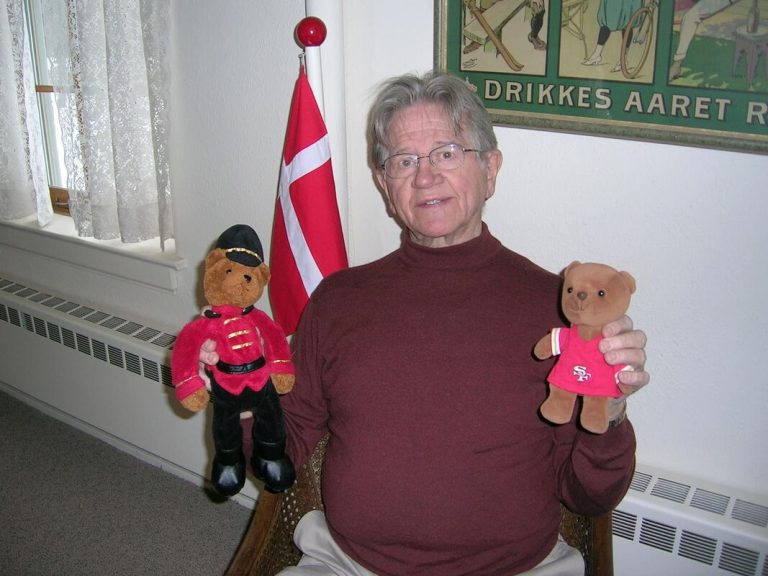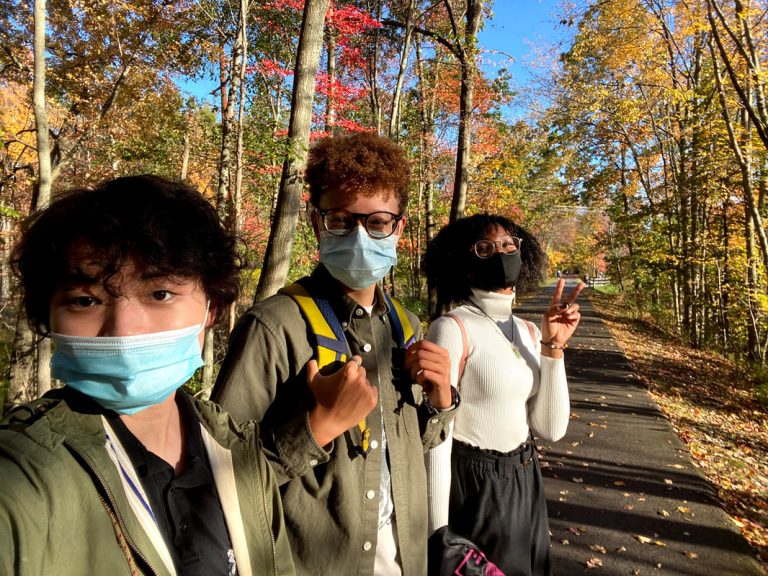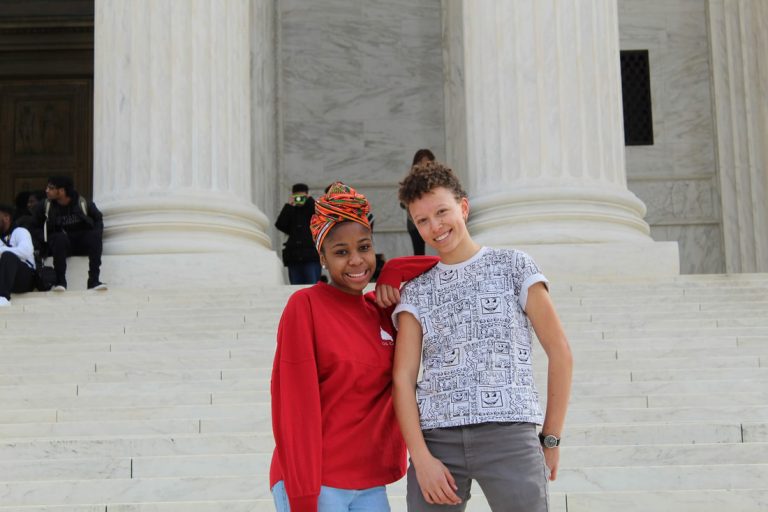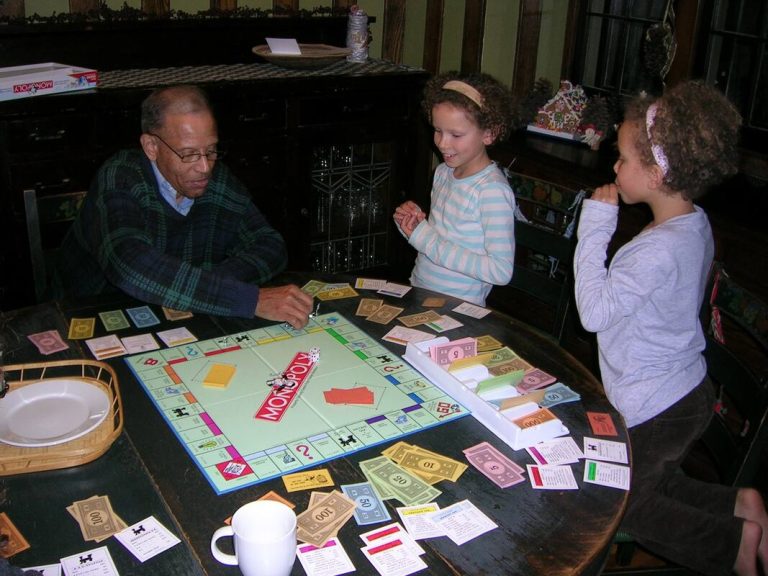I used to joke with my cousins that a family dinner was not complete without discussing who died, updates from Denmark, and politics. Throw in a bit of “Max I can’t believe you don’t like potatoes” and “Lili, since when do you not want ice in your water?” and you’ve just sat through a Jensen family dinner.
But, something I never realized, while hearing the stories about who died that week from my seat on the kids’ side of the table, is that my family handles death in a remarkable way. Until experiencing the loss of 2 grandparents in one year and 2 friends who had yet to turn 23 in another, I didn’t realize the true magnitude of loss.
When I lost my rabbits (see my archives for posts about that), it was Earth shattering. I was paralyzed with the loss of such small, delicate creatures that were supposed to be under my care. I remember being led into a small, dimly lit room at the veterinarian and being told that Phillip was dead. They gave us a keepsake to take home – a small, round, piece of clay that they had pressed Phillip’s paw into. At the time, I didn’t understand why the vets couldn’t just magically save him. It had been my responsibility to take care of them and I thought that I could’ve done so many things differently to keep his little soul alive. Later that rainy day, my mom and I buried Phillip in the garden, next to the grave of his brother Basil who had died long before Phillip did. We were bundled up in our rain gear, carrying the lifeless body of my tiny, precious companion. Not long after we buried Phillip, flowers bloomed right above his grave. He must’ve made for great fertilizer.
Here I am, seven years later, trying to write a semi-humorous, semi-insightful blog post through the blurry lens of tears as I reflect on the loss of a pet rabbit from my childhood. As I reflect, I wonder what it means to process the death of a loved one.
Last year in mid-June, I was anxious to step off the third consecutive plane after a 24-hour trip from New Zealand back to Minneapolis. I had decided to leave my study abroad program a few weeks early so that I could see my grandpa before his condition worsened. Dementia had made it increasingly difficult to complete daily life tasks, including eating and drinking. I hadn’t seen my family in 5 months and needed to see my grandpa. As I stepped off the plane, I was greeted by my extended family waving Danish flags and causing a scene, as usual: My grandma was sporting a newly chipped front tooth (lost from eating corn on the cob a few days earlier) and a walking stick taller than her. She was holding onto my cousin Siri with her free arm. My aunt was running around taking pictures and trying to get everyone in place for the family photo. My cousin Max was towering over everyone wearing a Twins jersey from the game he’d gone to earlier that day for his birthday. Classic Jensen family madness.
When we arrived at home, my dad sat me down on the couch and told me that my grandpa, his father, had died just hours earlier. He couldn’t hold on any longer. Despite my efforts to get home in time, my plane had landed four hours too late. I remember sobbing uncontrollably and thinking repeatedly “I wish I could’ve seen him one last time.” I didn’t know that when I left for New Zealand in January, that would be the last time I saw my grandpa. My dad seemed to be extremely disturbed by the fact that I had to hear that news the day I came home and I was extremely disturbed by the fact that I had no idea how my family could be dealing with a loss like this. Everyone that had come to the airport to greet me had known about my grandpa’s passing but put off their grief to greet me. My dad and aunt celebrated my homecoming mere hours after their father had passed. Even Max, whose grandpa had died on his 18th birthday, kept it together.
Later that summer, during the first weekend of my senior year, I found myself on a boat in Sag Harbor, at the second funeral that summer and in my entire life. I was extremely unable to keep it together. My grandpa’s final wishes had been for family to spread his ashes in Sag Harbor, a place where he had found community and established a home until his passing. I sat there surrounded by a somewhat strange group of family, many of whom had only known me when I was “thiiiiis big.” Somehow, it was a perfect group for the occasion. We all enjoyed a celebratory toast on the boat before we reached my grandpa’s final resting spot in Noyack Bay.
I don’t remember much of what was said as my uncle spread his father’s ashes. The waterworks started as soon as the bag was opened. I found myself bawling next to my Aunt Kim, who was graciously trying to comfort me as I attempted to simultaneously calm down and listen to the speeches from my family members. Through stories laced with a bit of sarcasm and wit, I got to know the man who was my grandpa. With every memory shared, I learned how similar we are. I think that made me cry harder. It’s heartbreaking being at the funeral of someone you didn’t know much but learn that you shared a lot of traits and values. I didn’t see my grandpa often, but he still kept in touch by sending me subscriptions to The Smithsonian and Scientific American magazines, an old microscope and slides, and occasional random science news. He knew the value of science and ensured that I had ample resources to pursue my curiosity. My family shared their own perception of his life in the form of marathons, dissecting dead animals, crazy eating habits, and a web of a family members as intricate and complex as his relationships with them.
Maybe when I get older and losing people becomes normal, I will have a system for handling grief. Maybe things will get easier as I age and we all get closer to the day we’re “supposed to” die. Maybe when I receive news that another one of my friends has passed away before they were able to graduate college, I will be that much more used to hearing that. Maybe I will never figure out a system for grieving; maybe it’s supposed to hit you like a truck when you least expect it. Maybe the truck is supposed to hit multiple times – once when I hear the news and another time when I process it. Maybe I will never process it.
It’s difficult to lose someone when you knew it was coming. It’s even more difficult if you knew it was coming and couldn’t do anything to stop it. And when this all happens to the purest, most humble soul before he even matriculated into a sophomore in college, the world doesn’t make sense anymore. Spencer’s death is perhaps one that hasn’t hit me quite yet. I don’t know if it ever will. Spencer’s story is better told in his own words than in mine: https://amherststudent.com/article/having-cancer-at-amherst-college/
This week, I found out that a friend from my childhood had passed away. Janaan and I grew up in the care of a program called Girls Inc. Eureka!, focused on empowering young girls in STEM. For five years, our cohort was the “guinea pig” group – the first of its kind in Minnesota. We grew into young adults together, completing internships, doing lab work, and preparing for college. We also developed emotionally– from trying to hold in our laughter as we talked about menstruation and sex education to standing our ground when demanding what was right. Janaan’s death is one I think I will never quite understand; we saw each other grow up and into ourselves in and outside of Girls Inc. Despite it all, Janaan didn’t even have the chance to graduate college before her life was taken.
Perhaps there will be a time when I’m sitting with my extended family eating dinner and my kids are keeping track of how many of our usual topics we talk about that night. Maybe they will experience the death of a pet and it will permanently shape their world a little bit. Maybe they will be scared to make too many friends, to know too many people because there is always the chance that they will lose them, too. I hope, during that time, that my children can be involved in the conversations about grief. Maybe they will be able to process with their loved ones the tragedy and beauty that are life and death. Maybe they will never have to experience losing someone at the worst time. Maybe they, too, will realize that it is always the worst time to lose someone.



